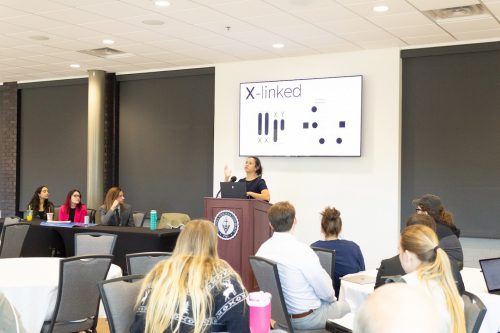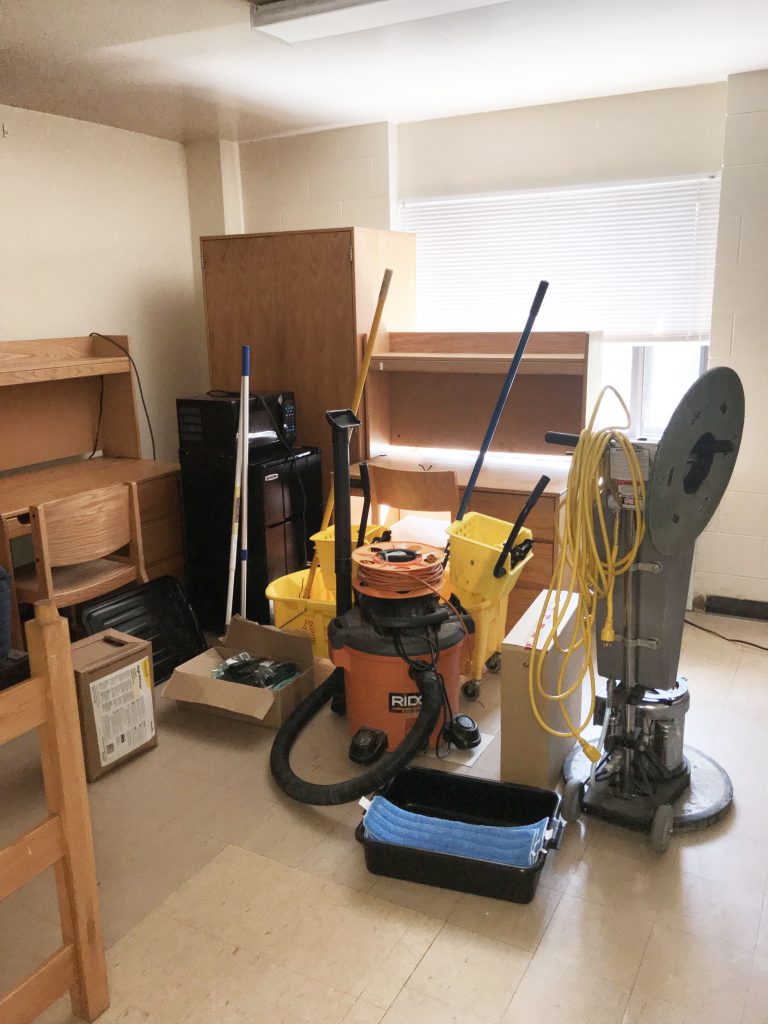Featured Image: Paper testing strips, called MicroPADs, appear blank prior to treatment. Sandra Abdellah |Courtesy
With students such as senior Sandra Abdellah producing valuable research all year round, community members express concern over a loss of emphasis on the Fall Academic Symposium.
For as long as current students can remember, the Academic Symposium, previously known as “Port Day,” has dismissed students from class for the day. This served as an incentive to participate. This fall, however, classes continued during the Symposium.
Professor John Rudel, director of Undergraduate Research, said this decision stemmed from the university’s shift of emphasis to the Spring Symposium. He said it is common for esteemed universities to only have one large research presentation near the end of the academic year in the spring.
According to Rudel, VWU initially organized two of these symposiums per year to give more opportunities for students to participate in the institution’s experiential learning requirements. In addition to research, this includes outside-of-the-classroom experiences such as internships and study abroad.
In pursuit of aligning with the practices of other universities, the research department has decided to drop the pomp and circumstance surrounding the Fall Symposium and save the limelight for the Spring Symposium.
This still has posed logistical concerns, causing some to voice their reactions to the change.
Sophomore Anna Greenleaf had a poster to present which summarized the semester’s worth of research she performed for her analytical chemistry class. Greenleaf said she struggled to fulfill all of her responsibilities that day with such a packed schedule.
After learning about the change in procedures around classes, senior Brooke Underwood expressed, “I think it’s unfortunate for the people who use it the way it’s intended.”
Regarding the shift of attention away from the Fall Symposium, Underwood pointed out that it is unfair to the people who won’t be here in the Spring due to reasons such as studying abroad or fall graduation. “I would be ticked off if I was graduating this semester and my research was pushed under the rug,” Underwood said.
Despite the decreased emphasis on the event, Rudel said that he is impressed by the quality of work for this Fall Symposium.
Notable projects include those of student premiere speakers: Sandra Abdellah, Alex Cain, Dahlia Perez and Sasha Saxon.
Senior and chemistry major Sandra Abdellah presented her research on medicine testing strips. Her research, entitled “Amisulpride Determination through Paper Analytical Device,” involved paper-based analytical testing devices geared toward pharmaceuticals.
She described the devices as small pieces of paper that can be used for specific chemical experiments. “They eliminate waste, they eliminate the cost of completing certain chemical experiments and overall they’re just more efficient,” Abdellah said.
For her pharmaceutical testing strip, she explained that people could “take a little piece of that pill out and they could put it into the PAD and they could see what color it turns and theoretically, they would be able to know exactly what they’re taking.” Abdellah said that this technology has both pharmaceutical and household applications, as it is a sure way to know the exact potency of a drug.
She said that the existing process for this kind of testing takes a significant amount of time, requires expensive materials and is inaccessible to most of the population.
Without this more accessible technology, Abdellah said that the options when it comes to uncertainty around a pill consist of discarding the pills or paying a medical professional to identify it.
She said that this kind of testing is necessary for safely administering certain medications because “there’s discrepancies between labeling and the actual chemical composition of drugs.” Abellah has broken ground by developing the tools for a more streamlined process.
Being the first of its kind, Abdellah’s findings have entrepreneurial potential that she plans to pursue.“The next step in publishing is potentially getting a patent out. There are currently only a few patents out in existence in the world right now for paper analytical devices. And there is absolutely no method for detecting Amisulpride on paper right now besides mine,” Abdellah said. Amisulpride is a medication that treats postoperative nausea and vomiting, and it can require different concentrations depending on its intended purpose.
“It’s just a way to make analysis a lot faster, cheaper, more flexible, it’s more replicable.”
Abdellah also spoke on the technology’s potential as a learning tool, in classrooms and beyond to countries that previously lacked the resources. She expressed her passion for the field of chemistry that she channels into her work as a TA. Abdella said that she hopes these devices, given their portability, can serve to widen the reach of chemistry knowledge.
With unprecedented research such as this arising from Virginia Wesleyan students, concerns about undercrediting the work in the Fall Academic Symposium persist.
By Lily Reslink


